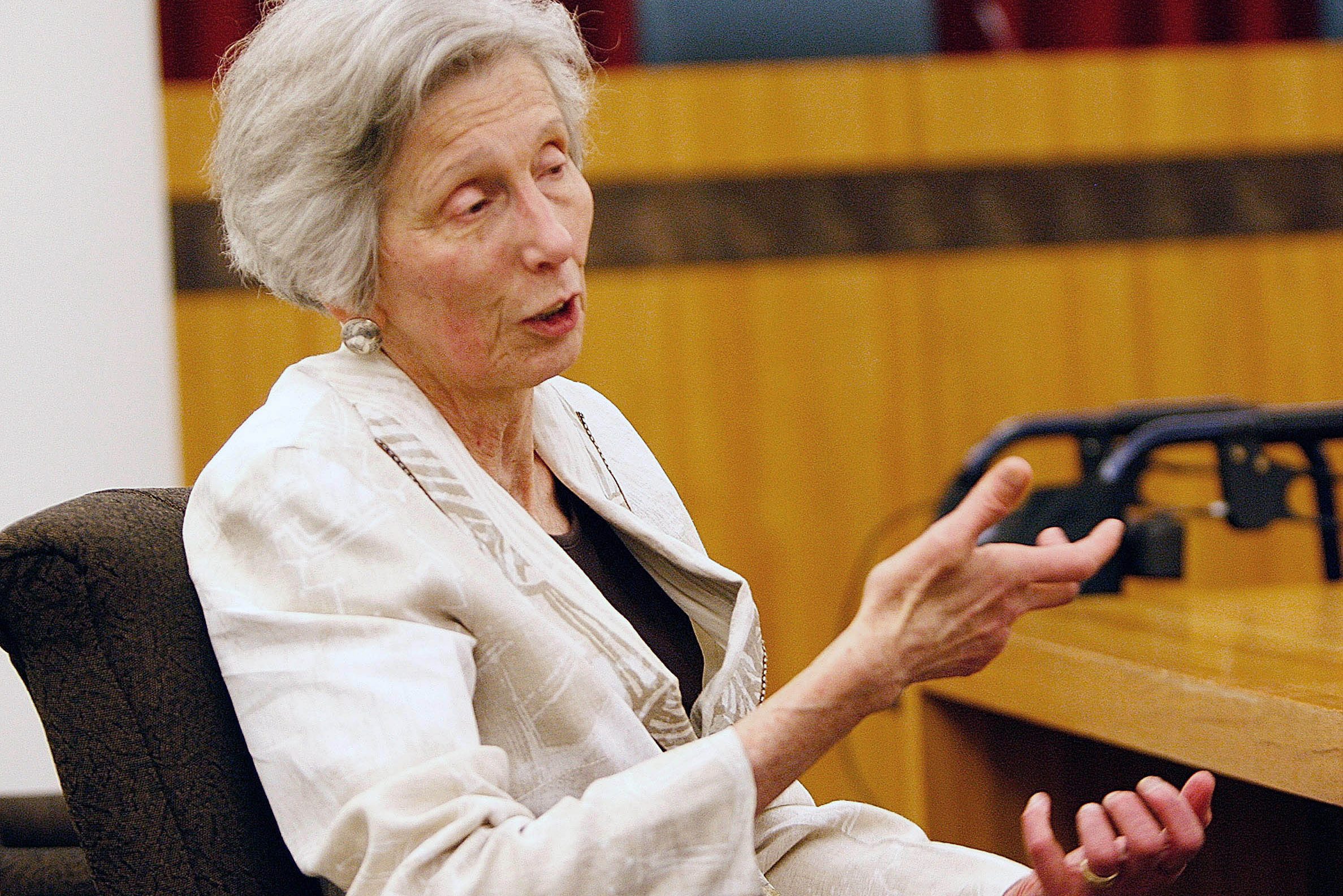
Colorado’s first woman to serve as a Supreme Court chief justice, Mary Mullarkey, died Wednesday morning after living with multiple sclerosis for many years. She was 77.
Mullarkey is heralded as a trailblazer and champion of women’s and minority rights, according to those who knew her.
“As a jurist and a leader, she played a critical role in transforming the justice system in Colorado,” said Colorado Attorney General Phil Weiser in a statement. “Her mentoring and support for greater diversity and inclusion in the legal profession is another important part of her legacy. With her sharp intellect, tenacity, and compassion, Chief Justice Mullarkey was the definition of a public servant and our state is better because of her dedicated service.”
Mullarkey served in the Supreme Court for 23 years after she was appointed by then-Gov. Roy Romer in 1987. She was selected by her peers to serve as chief justice in 1998, where she served for 12 years before retiring in 2010 as the longest-serving chief justice in state history.
In 1975, she became the solicitor general where she was lead counsel for the state in major appellate cases from 1975 to 1982.
“She was a great human being, and she was a great justice,” Romer said. “She was very significant in helping Colorado find some fairness in the treatment of gays by her work on the Supreme Court Case that has my name on it, Romer v. Evans. She performed a great public service, and I'll always remember it.”
The Romer v. Evans case made it all the way to the U.S. Supreme Court in 1996. The ruling voided an amendment to the Colorado constitution that prohibited laws protecting the rights of gay people.
Mullarkey first came to Colorado in 1973 with her husband, Tom Korson. That same year she worked at the Equal Employment Opportunity Commission office in Denver. That’s where she met former Chief Justice Michael Bender, who said her work in getting a new courthouse built and advocating for women and families will have a lasting impact on Colorado.
“My memory of her is just someone who is very brave, is strong and a wonderful person, warm, compassionate, humanistic, very bright, and really caring for the state judicial system and the rule of law,” Bender said.
He was also impressed by her ability to work through her illness.
“To be a full-time chief justice and have a horrible, terrible disease and she endured it wonderfully well and without complaint,” he said. “She was really a delight to be with despite the enormous physical hardship that she was undergoing.”
In 2005, she was awarded the National Multiple Sclerosis Society’s MS Achievement Award.
Mullarkey was born and raised in New London, Wisconsin, and went on to receive a mathematics degree from St. Norbert College in DePere, Wisconsin, and a law degree from Harvard University in 1968, where she was one of a handful of female students.
“There were 22 women in my class of about 525 students. There are a lot of professors that weren't quite with the idea that women should be admitted to law school,” said Mullarkey in a 2010 interview with Colorado Matters. “In fact, a couple of them refuse to call on women and would only call on women once a year on ladies day when they would only call on women and then ask questions that were obviously intended to show that they didn't take women seriously as students.”
She graduated and then worked as an attorney for the U.S. Department of Interior in Washington, D.C., where she represented federal agencies in environmental, water and civil rights cases.
Before retiring, she worked to bring a new home for Colorado’s state courts to fruition and ultimately succeeded. The Ralph L. Carr Colorado Judicial Center in Denver was completed in 2012, two years after Mullarkey retired. In that same year she was inducted to the Colorado Women’s Hall of Fame.
“Justice Mullarkey was an extraordinary individual with an unparalleled mind. Her impact on Colorado’s courts cannot be overstated. As the first female Supreme Court chief justice, she inspired countless future jurists,” said Gov. Jared Polis in a statement. “I’ll never forget when she swore me in for my first public office, the State Board of Education in 2001. Justice Mullarkey never allowed multiple sclerosis to slow her down, but continued to bring compassion, zeal, and wisdom to the court. She is already deeply missed.”
Mullarkey is survived by her husband Tom Korson, their son, Dr. Andrew Korson, daughter-in-law, Emily Korson, and two granddaughters. A mass of Christian burial is scheduled at the Cure d’Ars Catholic Church in Denver.









